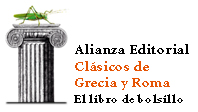Iter Aristotelicum: en torno a la circulación de manuscritos aristotélicos en la España medievalIter Aristotelicum: about the circulation of Aristotelian manuscripts in Medieval Spain
Ángel Escobar Chico
Resumen
Nuestro trabajo se propone mostrar algunos de los problemas que plantea el estudio de la circulación de manuscritos de interés aristotélico en la España medieval y se concentra en aspectos metodológicos y tipológicos que suelen condicionar ese estudio. Los materiales seleccionados corresponden a dos momentos que consideramos de especial significación para el tema, por muy distintos motivos, y reflejan entornos de transmisión textual —en ambos casos de carácter complejo y de difícil reconstrucción— muy diversos entre sí: la biblioteca isidoriana y el Toledo de la segunda mitad del s. XII. Muchos de los manuscritos aristotélicos a los que aludimos son deperditi o constituyen una mera hipótesis, pero necesaria para poder explicar de manera satisfactoria la notable irradiación del incipiente aristotelismo español en sendos momentos históricos.
Palabras clave: manuscritos; aristotelismo; medievo; España
Abstract
This paper intends to show some of the problems posed by the study of the circulation of Aristotelian manuscripts in medieval Spain and focuses on the methodological and typological aspects which usually determine this study. The selected materials correspond to two moments that we have considered to be of special significance for the subject, for different reasons, and reflect environments of textual transmission —always complex and difficult to investigate— which are very different from each other: the Isidorian library and the Toledo of the second half of the 12th century. The Aristotelian manuscripts to which we allude almost always constitute a mere hypothesis, as deperditi, but this representation seems necessary to explain satisfactorily the remarkable irradiation of the incipient Spanish Aristotelianism in both historical moments.
Keywords: manuscripts; Aristotelianism; Middle Ages; Spain
Referencias bibliográficas
Anzulewicz, H. & Ph.A.C. Anzulewicz (2021) «Alfred von Sareshels Glossenkommentar zu den Meteorologica des Aristoteles: ein Supplement zur kritischen Edition von James K. Otte», Przegląd Tomistyczny 27, 7-60.
Bataillon, L.-J. (2008) «Sur Aristote et le Mont-Saint-Michel: notes de lecture», Rev. Sc. ph. th. 92, 329-334.
Beullens, P. (2022) «Why did Latin translators translate from the Greek in the thirteenth century and later?», en Gutas, 525-543.
Büren, V. von (2007) «La place du manuscrit Ambr. L 99 sup. dans la transmission des Étymologies d’Isidore de Séville», en M. Ferrari & M. Navoni (eds.), Nuove ricerche su codici in scrittura latina dell’Ambrosiana. Atti del Convegno. Milano 6-7 ottobre 2005, Milán, Vita e Pensiero, 25-44.
— (2012) «Les Étymologies de Paul Diacre? Le manuscrit Cava de’ Tirreni, 2 (XXIII) et le Liber glossarum», IMU 53, 1-36.
— (2014) «Le De natura rerum de Winithar», en C. Codoñer & P. F. Alberto (eds.), Wisigothica. After Manuel C. Díaz y Díaz, Florencia, SISMEL -Edizioni del Galluzzo, 387-404.
Burnett, Ch. (1987a) «Adelard, music and the Quadrivium», en Burnett, 69-86.
— (1987b) «The writings of Adelard of Bath and closely associated works, together with the manuscripts in which they occur», Burnett, 163-196.
— (ed.) (1987) Adelard of Bath: an English scientist and arabist of the early twelfth century, Londres, The Warburg Institute – Univ. of London.
— (1990) «Adelard of Bath and the Arabs», en J. Hamesse & M Fattori (eds.), Rencontres de cultures dans la philosophie médiévale, Lovaina la Nueva – Cassino, Institut d’études médiévales, 89-107.
— (1992), res. de P. Morpurgo, Filosofia della natura nella schola salernitana del secolo XII, Bolonia, Coop. Libr. Univ., 1990, en Medium Aevum 61, 113-114.
— (1995) «Magister Iohannes Hispalensis et Limiensis and Qusṭā ibn Lūqā’s De differentia spiritus et animae: a Portuguese contribution to the arts curriculum?», Mediaevalia. Textos e Estudos 7-8, 221-267.
— (1996) «The introduction of Aristotle’s natural philosophy into Great Britain: a preliminary survey of the manuscript evidence», en J. Marenbon (ed.), Aristotle in Britain during the Middle Ages, Turnhout, Brepols, 21-50.
— (2001) «The coherence of the Arabic-Latin translation program in Toledo in the twelfth century», Science in Context 14, 249-288.
— (2008) «Scientific and medical writings, I: The introduction of scientific texts into Britain, c. 1100-1250», en Morgan & Thomson, 446-453.
— (2012) «The Arabo-Latin Aristotle», en A.M.I. van Oppenraay & R. Fontaine (eds., with the collab. of R. Smidt van Gelder-Fontaine), The letter before the spirit: the importance of text editions for the study of the reception of Aristotle, Leiden, Brill, 95-107.
— (2022) «The statements of medieval Latin translators on why and how they translate works on science and philosophy from Arabic», en Gutas, 445-487.
— (2019) «La première réception du Liber de causis en Occident (XIIe–XIIIe siècles)», en Calma, 46-69.
Calma, D. (ed.) (2019) Reading Proclus and the Book of Causes, I: Western scholarly networks and debates, Leiden – Boston, Brill.
Draelants, I. (2011) «Le De generatione et corruptione au ‘siècle d’or’ des encyclopédies médiévales», en J. Ducos & V. Giacomoto-Chiarra (eds.). Lire Aristote au Moyen Âge et à la Renaissance. Réception du traité Sur la génération et la corruption. Actes de la table ronde du 5 avril 2005, París, Champion, 135-173.
Falluomini, C. (1999) Der sogenannte Codex Carolinus von Wolfenbüttel (Codex Guelferbytanus 64 Weissenburgensis). Mit besonderer Berücksichtigung der gotisch-lateinischen Blätter (255, 256, 277, 280), Wiesbaden, Harrassowitz.
Ferrari, M. (2021) «Testi, scribi e dotti ‘hispani’ nell’Italia del nord nell’alto medioevo», en C. Codoñer (et al., eds.), Nuevos estudios de latín medieval hispánico, Florencia, SISMEL – Edizioni del Galluzzo, 47-74.
Fontaine, J. (1959) Isidore de Séville et la culture classique dans l’Espagne wisigothique, II, París, Études Agustiniennes.
— (2002) Isidoro de Sevilla: génesis y originalidad de la cultura hispánica en tiempos de los visigodos [= Isidore de Séville: genèse et originalité de la culture hispanique aux temps des wisigoths, Turnhout, Brepols, 2000], tr. M. Montes, Madrid, Encuentro.
Gutas, D. (2006) «What was there in Arabic for the Latins to receive? Remarks on the modalities of the twelfth-century translation movement in Spain», en A. Speer & L. Wegener (eds.), Wissen über Grenzen: arabisches Wissen und lateinisches Mittelalter, Berlín – Nueva York, De Gruyter, 3-21.
— (ed., with the assist. of Ch. Burnett – U. Vagelpohl) (2022) Why translate science? Documents from Antiquity to the 16th century in the historical West (Bactria to the Atlantic), Leiden – Boston, Brill.
Haskins, Ch. H. (1915) «The reception of Arabic science in England», The English Historical Review 30, 56-69.
Holtz, L. (1986) «Quelques aspects de la tradition et de la diffusion des Institutions», en S. Leanza (ed.), Flavio Magno Aurelio Cassiodoro. Atti della settimana di studi. Cosenza-Squillace 19-24 settembre 1983, Soveria Mannelli, Rubbettino, 281-312.
Judycka, J. (1986) Aristoteles Latinus, IX 1: De generatione et corruptione (Translatio vetus), Leiden, Brepols.
Lindsay, W. M. (1911), «The editing of Isidore Etymologiae», CQ 5, 42-53.
Loewe, R. (1953) «The mediaeval Christian hebraists of England: Herbert of Bosham and earlier scholars», Transactions of the Jewish Historical Society of England 17, 225-249.
Magee, J. – F. Troncarelli (2021) The Codex Pagesianus (BAV, Pagès 1) and the emergence of Aristotle in the medieval west, Ciudad del Vaticano, Biblioteca Apostólica.
Mandosio, J.-M. (2018) «Follower or opponent of Aristotle? The critical reception of Avicenna’s Meteorology in the Latin world and the legacy of Alfred the Englishman», en D. N. Hasse & A. Bertolacci (eds.) The Arabic, Hebrew and Latin reception of Avicenna’s physics and cosmology, Berlín – Boston, De Gruyter, 459-534.
Martín, J. C. (2002) La Renotatio librorum domini Isidori de Braulio de Zaragoza (†651). Introducción, edición crítica y traducción, Logroño, Fundación San Millán de la Cogolla.
— (2005) «Isidorus Hispalensis ep.: 8. De natura rerum» e «Isidorus Hispalensis ep.: 9. Chronica», en P. Chiesa & L. Castaldi (eds.), La trasmissione dei testi latini del medioevo: TE.TRA 2, Florencia, SISMEL – Edizioni del Galluzzo, 353-362 y 362-370 resp.
Miguel Franco, R. (2014), «Tópicos de los prólogos en las cartas introductorias a las Etymologiae de Isidoro de Sevilla», Acme 1, 109-132.
Minio-Paluello, L. (1952) «Note sull’Aristotele latino medievale, VII: Manoscritti aristotelici latini del XII secolo con note contemporanee: scolii greci alla ‘Metafisica’ tradotti in latino da Giacomo Veneto», en Opuscula. The Latin Aristotle, Amsterdam, Hakkert, 1972, 178-188 [= Rivista de Filosofia Neo-Scolastica 44, 211-231].
Miolo, L. (2019) «Le Liber de causis et l’Elementatio theologica dans deux bibliothèques anglaises: Merton College (Oxford) et Peterhouse (Cambridge)», en Calma, 120-150.
Morgan, N. & R. M. Thomson (eds.) (2008), The Cambridge history of the book in Britain, II: 1100-1400, Cambridge – Nueva York, Cambridge Univ. Press.
Morpurgo, P. (1991) «Le prime glosse alla traduzione latina del De generatione et corruptione e la loro utilizzazione nei commentatori salernitani: un aspetto della diffusione dell’Aristotele latino tra i medici del secolo XII», Clio 27, 479-499.
Morresi, I. (2018) «Caratteristiche del testo delle Institutiones riflesso nelle Etymologiae di Isidoro di Siviglia», Studi medievali, ser. 3ª, 59, 215-270.
— (2020) «Scrivere in greco a Vivarium dopo Cassiodoro. Competenze e cultura grafica dell’interpolatore Δ alle Institutiones», Annali della Scuola Normale Superiore di Pisa. Classe di Lettere e Filosofia 12, 141-164 y 314.
Murray Jones, P. (2008) «Scientific and medical writings, I: University books and the sciences, c.1250-1400», en Morgan & Thomson, 453-462.
Mynors, R.A.B. (19612, 1937) Cassiodori Senatoris Institutiones edited from the manuscripts by…, Oxford, Clarendon Press.
Otte, J.K. (1972) «The life and writings of Alfredus Anglicus», Viator 3, 275-291.
— (1976) «The role of Alfred of Sareshel (Alfredus Anglicus) and his commentary on the Metheora in the reacquisition of Aristotle», Viator 7, 197-209.
Polloni, N. (2016) «Aristotle in Toledo: Gundissalinus, the arabs, and Gerard of Cremona’s translations», en Ch. Burnett & P. Mantas-España, Ex Oriente lux. Translating words, scripts and styles in medieval Mediterranean society, Córdoba – Londres, Univ. de Córdoba, CNERU – The Warburg Institute, 147-185.
Rashed, M. (2001) Die Überlieferungsgeschichte der aristotelischen Schrift De generatione et corruptione, Wiesbaden, Reichert.
Rubino, E. (2010) Aristoteles Latinus X 1: Meteorologica. Liber quartus. Translatio Henrici Aristippi, Bruselas, Brepols.
Ryan, M. J. (2020) «Isidore amongst the islands: the reception and use of Isidore of Seville in Britain and Ireland in the early Middle Ages», en A. Fear & J. Wood (eds.), A companion to Isidore of Seville, Leiden, Brill, 424-456.
Santoyo, J.-C. (2016) «El normando Hugo de Cintheaux (Hugo Sanctelliensis), traductor en Tarazona (ca. 1145)», en C. Carta & S. Finci & D. Mancheva (coords.), Antes se agotan la mano y la pluma que su historia / Magis deficit manus et calamus quam eius historia: homenaje a Carlos Alvar, Cilengua, San Millán de la Cogolla, I, 341-357.
Smyth, M. (2016) «Isidorian texts in seventh-century Ireland», en A. Fear & J. Wood (eds.), Isidore of Seville and his reception in the early Middle Ages: transmitting and transforming knowledge, Amsterdam, Univ. Press, 111-130.
Steinová , E. (2020-2021) «The oldest manuscript tradition of the Etymologiae (eighty years after A. E. Anspach)», Visigothic Symposium 4, 100-143.
Wingate, S. D. (1931) The mediaeval Latin versions of the Aristotelian scientific corpus, with special reference to the biological works, Londres, The Courier Press.
Revista
-
Sobre la revista
Página principal
-
Estatutos
Estatutos de la Revista Estudios Clásicos
-
Código ético
Declaración de buenas prácticas
-
Normas de recepción y envío
Indicaciones para envíos de artículos
-
Equipo editorial
Consejos de redacción y asesor
-
Comité de honor
Comité de honor
Información
-
Para autores
Publicar con nosotros
-
Para evaluadores
Normas para evaluar artículos
-
Para bibliotecas
Información bibliográfica
-
Contacto
Cuestiones y preguntas
Publicar en EClás
-
Envío de originales
Artículos y reseñas
-
Normas de publicación
Descarga normas en PDF
-
Estilo CSL EClás
Estilo CSL EClás
-
Índices de calidad
Bases de datos e impactos


 c/ Serrano, 107
c/ Serrano, 107